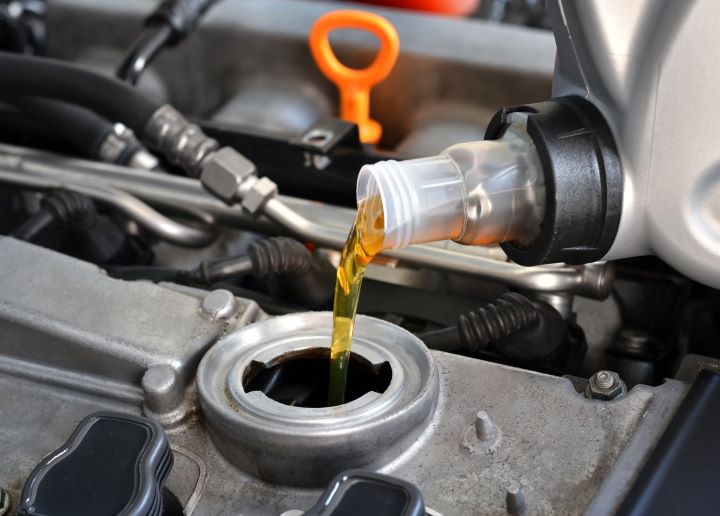A Simple Guide to Oil Changes for Seniors: What You Need to Know
Keeping your car running smoothly is essential for your independence. For many, the details of car maintenance, like a routine oil change, can be confusing. This guide breaks down why this simple service is so important for the health of your vehicle, helping you understand the process and maintain your car with confidence.

Why are regular oil changes important?
Oil changes are the lifeblood of your vehicle’s engine. Fresh, clean oil lubricates the engine’s moving parts, reduces friction, and helps prevent wear and tear. As you drive, the oil gradually collects dirt, debris, and metal particles, becoming less effective over time. Regular oil changes ensure that your engine continues to operate efficiently, potentially extending its lifespan and helping to maintain your vehicle’s overall performance.
How does an oil change affect your car’s engine health?
An oil change directly impacts your engine’s health and longevity. Clean oil helps to:
-
Reduce engine wear by properly lubricating moving parts
-
Regulate engine temperature by absorbing and dissipating heat
-
Improve fuel efficiency by reducing friction within the engine
-
Prevent the buildup of sludge and harmful deposits
-
Maintain proper engine sealing to prevent leaks
By consistently changing your oil at recommended intervals, you’re actively protecting your engine from premature wear and potential damage, which can be especially beneficial for seniors looking to avoid unexpected repair costs.
What should you look for in a quality oil change service?
When seeking an oil change service, consider the following factors to ensure you’re getting a quality job:
-
Reputation: Look for well-established service centers with positive customer reviews.
-
Certification: Choose technicians certified by reputable organizations like ASE (Automotive Service Excellence).
-
Transparency: The service provider should clearly explain what’s included in the oil change package.
-
Quality of materials: Ensure they use high-quality oil and filters appropriate for your vehicle.
-
Inspection services: Many good oil change services include a basic vehicle inspection to catch potential issues early.
-
Warranty: Some services offer warranties on their work, which can provide additional peace of mind.
What are some simple tips to extend the life of your vehicle?
While regular oil changes are crucial, there are other simple steps seniors can take to keep their vehicles in good condition:
-
Follow the manufacturer’s recommended maintenance schedule
-
Check and maintain proper tire pressure
-
Regularly inspect and replace air filters
-
Keep the vehicle clean, inside and out, to prevent rust and wear
-
Pay attention to warning lights and unusual noises
-
Use quality gasoline and consider fuel system cleaners periodically
-
Park in covered areas when possible to protect from weather extremes
These simple practices, combined with regular oil changes, can significantly extend your vehicle’s lifespan and maintain its reliability.
What’s the difference between conventional and synthetic oils?
Understanding the types of oil available can help you make informed decisions about your vehicle’s maintenance:
Conventional Oil:
-
Made from crude oil
-
Less expensive
-
Suitable for older vehicles with simpler engine designs
-
Requires more frequent changes
Synthetic Oil:
-
Engineered in a laboratory
-
More expensive upfront but may be more cost-effective long-term
-
Provides better engine protection and performance
-
Lasts longer between changes
-
Better for extreme temperatures and high-performance engines
Semi-synthetic or synthetic blend oils offer a middle ground, combining some benefits of synthetic oil with a lower price point.
| Oil Type | Average Cost | Change Interval | Best For |
|---|---|---|---|
| Conventional | $25-$50 | 3,000-5,000 miles | Older vehicles, simple engines |
| Synthetic | $45-$70 | 7,500-15,000 miles | Newer vehicles, high-performance engines |
| Synthetic Blend | $35-$60 | 5,000-7,500 miles | Vehicles with moderate performance needs |
Prices, rates, or cost estimates mentioned in this article are based on the latest available information but may change over time. Independent research is advised before making financial decisions.
Choosing the right oil and maintaining a regular oil change schedule is an essential part of vehicle ownership. For seniors, this simple maintenance task can mean the difference between a reliable, long-lasting vehicle and unexpected breakdowns or costly repairs. By understanding the importance of oil changes, knowing what to look for in a service provider, and following simple vehicle care tips, you can ensure your car remains a dependable part of your daily life for years to come.




